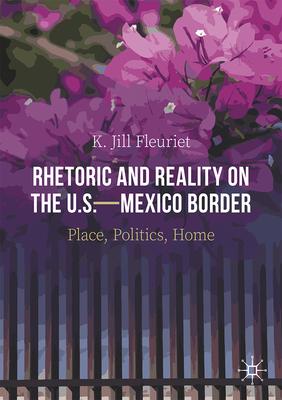Stemming from four years of ethnographic research, media analysis of over 750 national news articles published in the 2010s, and decades of the author's professional and personal immersion in the Rio Grande Valley of south Texas, Rhetoric and Reality illuminates a place at the heart of our national conversation: the U.S.-Mexico border. K. Jill Fleuriet contrasts the rhetoric of national political and media discourse with that of local border leaders in economics, health care, politics, education, law enforcement, philanthropy, and activism. As she deconstructs the common narrative of a border in need of external intervention to control corruption, poverty, sickness, and violence, Fleuriet engagingly illustrates the range of regional organizing, local development strategies, and community responses in the borderlands that ultimately situate the Rio Grande Valley as the "true North" of the U.S. national compass-where the Valley goes, the rest of the country soon will follow. Rhetoric and Reality asks us to question our own assumptions, especially about those areas that drive national decisions about resource allocation, economic development and national security.
"Rhetoric and Reality is an important ethnographic study of the deeply misunderstood, increasingly vilified, Rio Grande Valley located on the Texas-Mexico border. Fleuriet presents a balanced counter-narrative that that shows the region as one of growth, innovation, complexity, and rich with meaning. Rhetoric and Reality is an excellent example of place-based, reflexive scholarship appropriate for use in courses on border theory, applied anthropology, and research methods. Written clearly and crisply with a wide readership in mind, Rhetoric and Reality is mandatory reading for those wanting to better understand the US-Mexico border region and the people who live there."--Margaret A. Graham, Professor and Chair, The University of Texas Rio Grande Valley, USA
"This is an important book, as it describes life in the Rio Grande Valley rather than 'on the border.' The notion of 'the border' as an open range in need of external help is challenged, as the author illustrates the wide range of leadership and programmatic change occurring in the Rio Grande Valley."
--Roberto R. Alvarez, Professor Emeritus of Ethnic Studies, University of California, San Diego, USA
